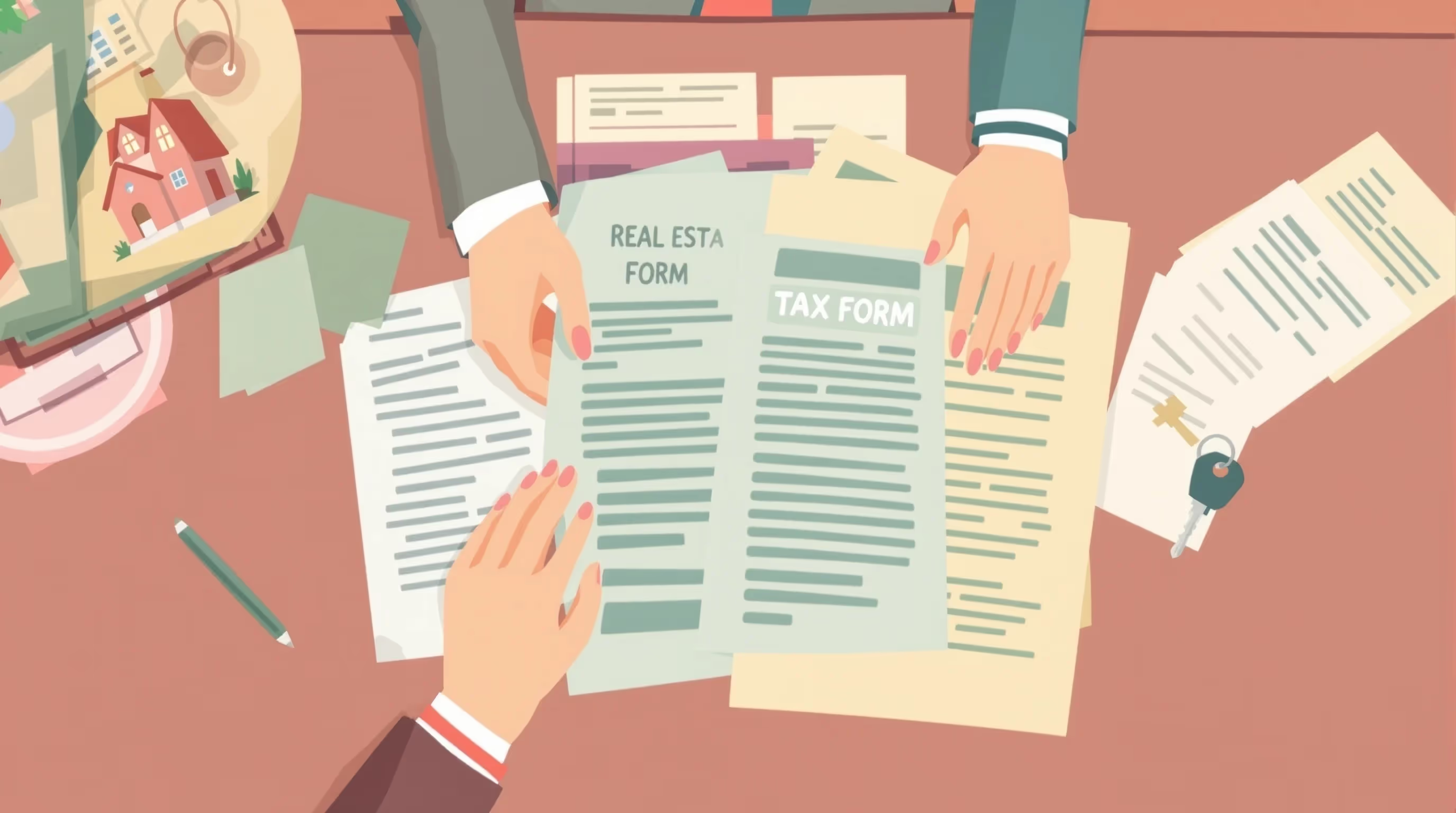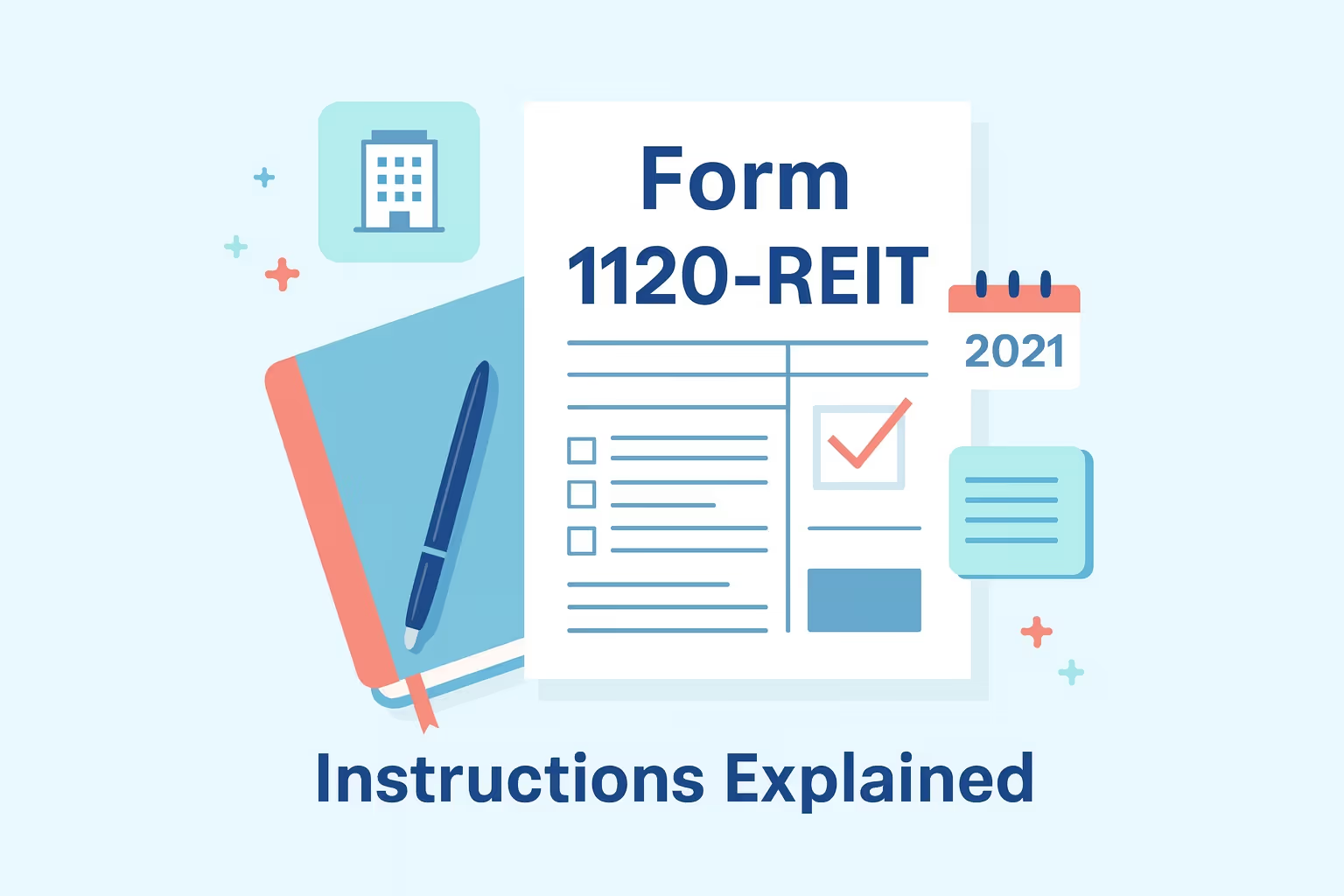
What IRS Form 1120-REIT (2017) Is For
IRS Form 1120-REIT (2017) is the federal income tax return used by a real estate investment trust to report income, gains, losses, deductions, credits, and tax liability. Real estate investment trusts are required to file this form annually to remain compliant with IRS regulations. Any corporation or trust that elected REIT status for the 2017 taxable year—or earlier prior years without revoking the election—was required to file the proper forms and follow the 2017 instructions listed in the official IRS guidance.
A REIT files this income tax return to report taxable income, pay taxes when required, document dividends, and show it continues to qualify under annual income tests, asset tests, and shareholder rules. The form covers real estate assets, rents, mortgages, real property interests, and the gross income from different types of real estate investment activities of REITs.
For a detailed breakdown of filing requirements, eligibility rules, and step-by-step instructions, see our guide on Form 1120-REIT for 2017.
When You’d Use Form 1120-REIT for 2017 (Late or Amended Filing)
You would file a late 2017 Form 1120-REIT if the return were not submitted by the original due date of April 15, 2018, for calendar-year REITs. Returns filed years late often happen when the IRS sends letters about unfiled tax returns, missing payments, or discrepancies in income or dividends. A REIT may need to file an amended tax return when taxable income was miscalculated, when a taxable REIT subsidiary was overlooked, or when the dividend deduction or asset tests were misapplied.
Eligibility for a refund on a 2017 return expired on April 15, 2021; however, a REIT may still file late to limit penalties and ensure document compliance. Even without a refund, filing helps prevent further IRS notices and interest charges.
Key Rules Specific to 2017
- TCJA transition rules: Fiscal-year REITs that covered 2017 and 2018 were required to apply a blended corporate rate, combining the prior graduated structure with the new 21 percent flat rate.
- Corporate AMT still applied: A corporation filing a REIT return for a fiscal year starting before January 1, 2018, remained subject to AMT rules for that first taxable year.
- Late-filing penalty increase: Returns filed more than 60 days past the due date triggered a minimum penalty of $210 or 100 percent of the unpaid tax, whichever was less.
- Qualification requirements: A REIT still needed to meet the 90 percent distribution rule, the asset tests, the 100-shareholder rule, the limit on five or fewer individuals owning more than 50 percent of the value in the last half of the year, and the annual income tests tied to real estate.
Browse more tax form instructions and filing guides in our Forms Hub.
Step-by-Step (High Level)
- Gather IRS transcripts: Request transcripts through Form 4506-T, your IRS business account, or IRS.gov to confirm prior filings, payment activity, and whether a REIT's return was registered as filed.
- Use the official 2017 form: Complete only the 2017 version of Form 1120-REIT so the tax is calculated using the correct rules, definitions, and schedules.
- Attach all required schedules: Include schedules for dividends, tax computation, capital gains, balance sheets, and any supporting real estate investment or loan information.
- File the return: Mail the completed return to the proper service center based on the company’s address and total assets. Older forms generally cannot be e-filed and must be mailed securely, often showing the locked padlock icon on IRS instruction pages.
- Retain copies: Keep every page of the filed return, along with notes, forms, and supporting documents, for at least three years.
Learn more about federal tax filing through our IRS Form Help Center.
Common Mistakes and How to Avoid Them
- Using the wrong year form: Use the correct 2017 form and instructions to avoid IRS rejection and misapplication of tax rules.
- Miscalculating the dividends paid deduction: Check taxable income carefully before applying the deduction to ensure REIT qualification is maintained.
- Failing REIT qualification tests: Review whether five or fewer individuals owned too much of the value, whether income met the 75 percent real estate test, and whether distribution rules were met.
- Missing required schedules: Attach each schedule in the correct order so IRS processing is not delayed.
- Mailing to the wrong service center: Confirm the correct address in the 2017 instructions to avoid delays or extra penalties.
- Skipping reasonable cause statements: Include a clear explanation when filing very late to request penalty relief.
Learn more about how to avoid business tax problems in our guide on How to File and Avoid Penalties.
What Happens After You File
The IRS typically takes several weeks to process a REIT income tax return, although older filings may take longer. Notices may confirm acceptance, request additional details, or show tax owed. Penalties and interest continue to accrue from the original due date of the return until the REIT pays the tax balances owed.
A REIT may arrange a payment plan using Form 9465 or online payment tools. The IRS also allows appeals when the REIT disagrees with adjustments. Payments may relate to taxable income, interest on loans, or adjustments tied to real estate assets or mortgages.
FAQs
Can I still file my IRS Form 1120-REIT (2017) income tax return even though it is years late?
Yes, a real estate investment trust can still file its 2017 tax return even after many years have passed. Although the refund period has passed, filing helps limit penalties, ensures compliance, and reduces the risk of collection activity. A late return also clarifies income, dividends, and tax amounts shown in the IRS record.
What penalties will a real estate investment trust face for filing the 2017 income tax return late?
A REIT may face a failure-to-file penalty of 5 percent per month and a failure-to-pay penalty of 0.5 percent per month. These penalties are based on taxable income and unpaid tax. The IRS may also add interest from the original due date. Reasonable cause statements can sometimes reduce penalties.
How can a real estate investment trust investor get transcripts of a 2017 tax return or income tax information?
You can request transcripts showing income, stock activity, dividends, and payments by using Form 4506-T, calling the IRS, or accessing your business online account. These transcripts help ensure you do not file duplicate returns and help confirm amounts for real estate investment reporting.
Is there still time to claim a refund on a 2017 real estate investment income tax return?
No, the refund window for a 2017 REIT tax return closed in 2021. Although a refund is no longer available, a REIT can still amend the return to report accurate real estate income, distribution information, or corrections related to assets and mortgages.
Do I need to amend my state tax return if my 2017 federal real estate investment return is amended?
Most states require amending the state tax return when you amend a federal return involving real estate income or property-related adjustments. Review state regulations to confirm requirements.



































